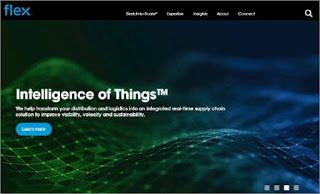In yet another failure-to-function case, the Board affirmed a refusal to register INTELLIGENCE OF THINGS as a service mark for supply chain management services, custom manufacture of electronics, and engineering services. Third-party uses of, and media references to, the phrase convinced the Board that INTELLIGENCE OF THINGS does not "perform the desired service mark function and does not fall withing the Act's definition of a service mark." In re Flex Ltd., Serial Nos. 86453853 and 86493735 (December 9, 2019) [not precedential] (Opinion by Judge Michael B. Adlin).

The evidence revealed that third parties use INTELLIGENCE OF THINGS to refer to "the ongoing development and next phase of the Internet of Things ("IoT") [i.e., the interconnectivity of digital devices via the Internet and to each other], and specifically its increasing use of artificial intelligence ("AI")." The Board found that INTELLIGENCE OF THINGS "would be perceived not as a mark but as a merely informational and widely used phrase." Competitors should be free to use this "widespread and increasingly important" terminology.
The evidence reveals INTELLIGENCE OF THINGS does not fall within the definition of a service mark. In fact, many third parties and media sources have a common and consistent understanding of the phrase INTELLIGENCE OF THINGS, which refers not to Applicant or its services, but instead to the merging of the Internet of Things and artificial intelligence.
The Board found it clear from the way the phrase is used that it conveys information rather than identifies source. The phrase merely identifies the technology (IoT with artificial intelligence) that applicant uses to provide its services.
INTELLIGENCE OF THINGS is "too commonly used by too many third parties for it to identify any particular goods or services or the sources thereof." Granting registration to applicant "would achieve the absurd result of hampering others in their use of the common phrase INTELLIGENCE OF THINGS for goods or services which features or are rendered through 'intelligent' IoT devices."
Applicant Flex urged the Board to adopt a new test for the failure-to-function analysis, arguing that the new test synthesizes the case law and, "not surprisingly," would result in a reversal of the subject refusal.
Applicant specifically contends that a phrase fails to function as a mark only when it "(i) has a single, well understood meaning or message, (ii) is widely used by the general public to convey the well understood meaning or message, and (iii) relates to a topic of nationwide awareness or is the type of phrase that is "uttered on a daily basis, almost automatically without thought."
The Board was unimpressed. First, the meaning of the proposed mark must be considered in relation to the services at issue, and here the evidence shows that INTELLIGENCE OF THINGS has a "consistent and well-understood meaning" in connection with applicant's services. Second, the Board is not concerned with the perception of the "general public" but with that of the purchasers of applicant's services. And third, for the same reason, the phrase need not be a "topic of nationwide awareness."
The Board concluded that because the proposed mark is merely informational and is widely used by the relevant consumers, it would not be perceived as a source indicator , and so it fails to function as a service mark under Sections 1, 2, 3, and 45 of the Trademark Act.
Read comments and post your comment here.
The content of this article is intended to provide a general guide to the subject matter. Specialist advice should be sought about your specific circumstances.
